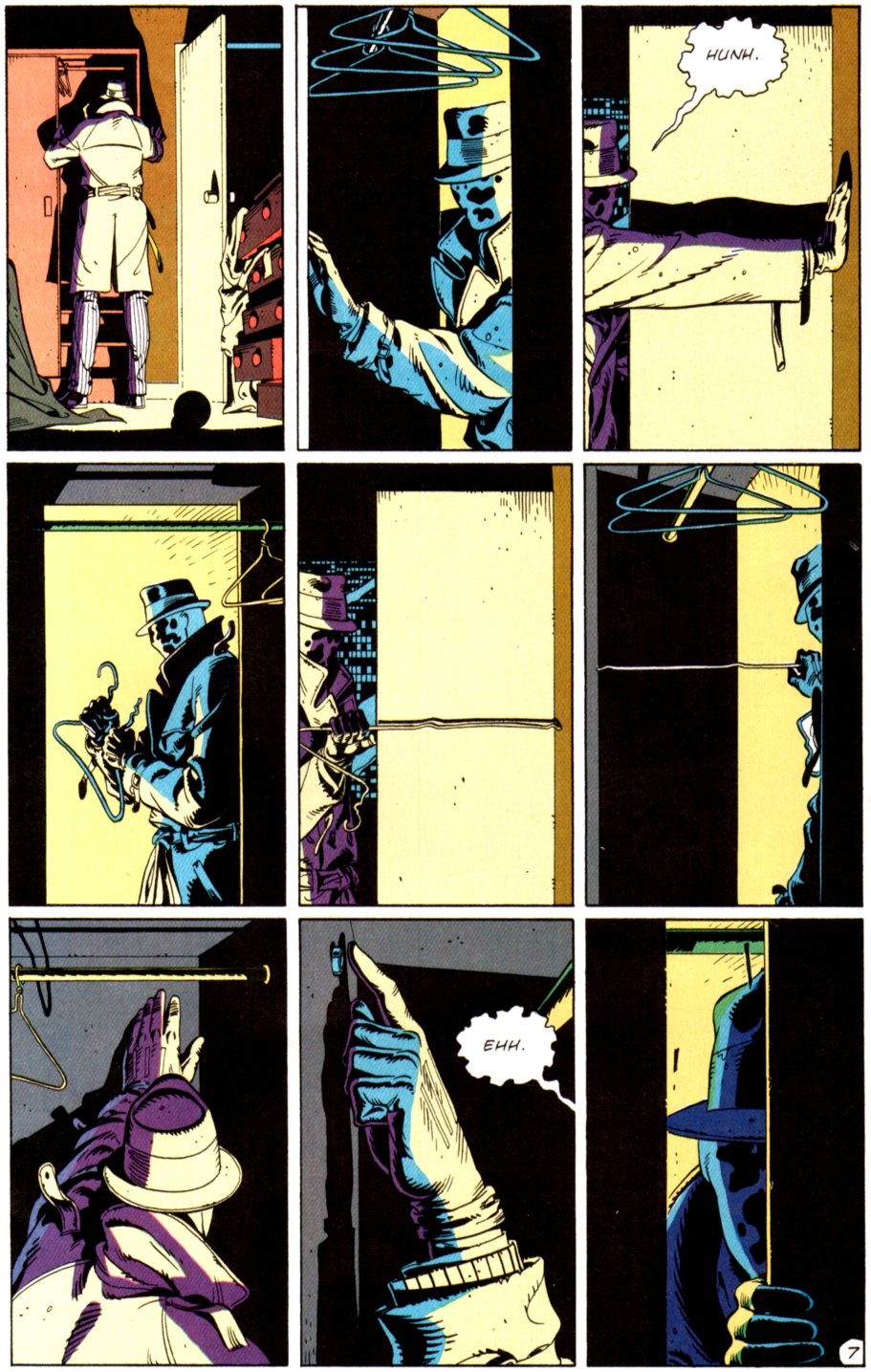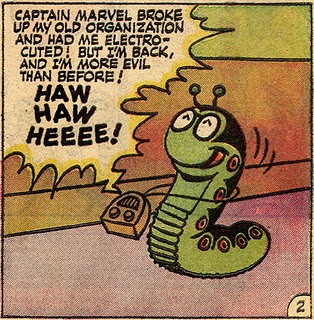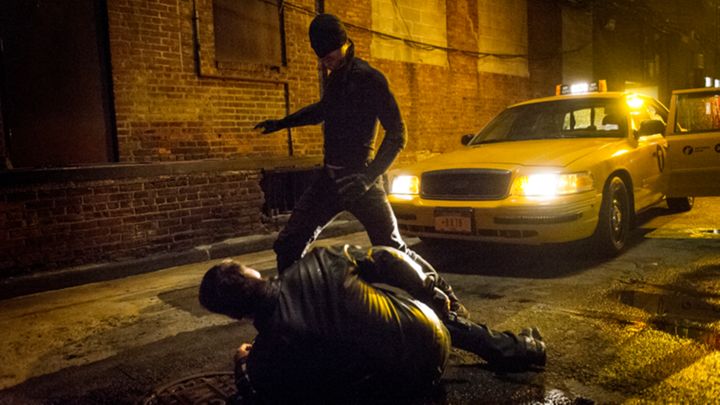So, as some of you probably know, I’m currently working on a Patreon to fund one column a week about topics I can’t get mainstream sites to publish. (The column will be called Twisted Mass of Heterotopia, by the by — or it is called that, since this is the first one!)
This piece is a kind of sample of the sorts of things I might write about. I initially placed it at a lovely little crime fiction site called The Life Sentence. But before it could get published, the site shut down. Because there’s no business model that makes printing things like this affordable.
So, since it was homeless, I figured I would run it here. If you’d like to see essays like this on a regular basis, please consider contributing.
Thanks also to Lisa Levy, my editor, who offered a bunch of suggestions that made the piece better.
__________
Alan Moore and Dave Gibbon’s 1987 graphic novel Watchmen famously opens with a murder mystery: the Comedian, superhero and government operative, has been thrown to his death from his upper-story apartment. The detective investigating the crime, trench coat and all, is the brutal, deadly superhero Rorschach. After the police leaves he invades the Comedian’s apartment in a grid of light and shadow, his body leached of color as a semi-silhouette against dramatic squares of black and yellow. In this context, Rorschach’s masked face, with its shifting globs of black on white, becomes a genre reference. The superhero’s secret identity in Watchmen is noir — at least until Moore and Gibbons undermine that, as they undermine most everything else.
Watchmen is probably the most critically acclaimed superhero comic ever ;,regularly appearing high up on best of comics lists, and even garnering a spot on Time’s list of 100 Best Novels,. It is perceived as, and presents itself as, serious art . And part of the way that it presents itself as serious art is by using the tropes of tough pulp crime .
Compared to highbrow lit, crime fiction can seem declassé. But superhero comics have long been aimed at children, and have a tradition of whimsical goofiness — Captain Marvel fighting an evil sentient worm, or Wonder Woman bouncing off to the stars on the back of a giant space kangaroo, In comparison, Raymond Chandler and Jim Thompson come across as relatively validating and adult. Crime lends superheroes grit, seriousness, and realism.
And so Rorschach’s origin story involves the true-crime 1964 Kitty Genovese rape . In a case early on in his career Rorschach investigates a child’s murder, and ends up killing her killers in bloody fashion. He later breaks a man’s fingers for information, and tracks down a crime boss in a shadowy prison saturated with enough blood and tough talk to fit neatly into the lineage stretching from Assault on Precinct 13 to Oz.
Watchmen created a whole slew of adult, gritty violent superhero narratives in its wake. One of the most notorious was a 1994 Green Lantern story in which GL”s girlfriend was murdered and stuffed into a refrigerator. Another was the 2004 series Identity Crisis in which Sue Dibny, the wife of that silly character, the Elongated Man, was brutally murdered. These comics were not necessarily highly thought of, but they show the trend towards using crime and pulp violence as a way to signal adult fare, and separate superheroes from their infantile past. There’s nothing like a murdered superspouse to demonstrate that comics aren’t for kids any more.
The most recent high-proifle example of superhero crime as validation is the highly aclaimed Daredevil Netflix series. Daredevil is the most ground-level, grimy, street-level-crime focused Marvel franchise since 1998’s Blade. The series is loosely based on the also much-admired Frank Miller/Dave Mazzucchelli graphic novel Born Again — not so much in its plot as in its vision of Matt Murdock fighting alone against the Kingpin and his tangled web of organized villainy. Daredevil’s origin story (in both comic and television) involves his boxer dad enmeshed in a price- fixing scheme. On Netflix, his first episode battle is against human traffickers. These familiar genre narratives signify realism because they ooze a familiar corruption and sleaze.
The fact that the Kingpin is involved in a complicated gentrification scheme seems like meta-commentary . The upscale skyscraping jauntiness of Iron Man or Thor or even Ant-Man has no place here in these grim, rent-controlled, crime-ridden streets. Daredevil is tougher and truer because he’s fighting street-level dealers and pimps and local-news-headline scum. The hero has supersenses (not very realistic that) but he usually uses them to figure out whether people are lying so he can torture them in classic tough guy style. The interdimensional alien invasion which closes out the Avengers film serves as the backdrop for the Daredevil series — the evil Loki’s monster army destroyed all the buildings that the Kingpin plans to rebuild. But that decidedly un-gritty invasion backstory serves as a foil. Those silly things fly around up there in someone else’s superhero narrative. Here (for the most part) our superpowers are dark, serious, and earth-bound.
An alien of sorts also whooshes in at the conclusion of Watchmen — and not coincidentally, that ending has often been seen as one of the series’ weakest moments. All the grim darkness and dark grimness, and this is the end? Rorschach’s pulp investigation turns out to be a preposterous red herring set up by super-villain/hero Adrian Veidt/Ozymandias. No one was out there murdering superheroes, as Rorschach thought. Instead, it was all a distraction from Veidt’s plan to build a giant Cthulhu-analog complete with broadcasting psychic-brain and explode it in New York, thus uniting the world against the alien invaders. The whole thing is utterly preposterous sci-fi goofiness. And Rorschach, our intrepid detective, is disintegrated by Dr. Manhattan with an energy blast. So much for realism.
I remember reading Watchmen when I was in high school and being hugely disappointed by the goofy conclusion (did I mention Ozymandias catches a bullet? He’s got Tibetan mystical skills or something, so he catches a bullet.). But as I’ve gotten older, I’ve come to appreciate the ruthless silliness with which Moore undercuts his own pulp validation. Rorschach thinks that crime and the brutal law of the streets is reality. As a ground-level detective, he figures that the problems he faces are ground-level problems that he can work out. Solve a murder, find the killer, break a few fingers —maybe it won’t save the world, but it’s doing good by inches in the muck of Real Life.
But what if Real Life isn’t particularly real? What if all that local-news-panic crime doesn’t actually matter? Veidt saves the world in one big rush by dropping a gigantic alien bomb — or possibly he doesn’t save anything, and just kills a whole mess of people, like George Bush rushing into Iraq. Either way, he and his ridiculous megalomaniacal schemes are a lot more real, in the sense of real consequences, than Rorschach wandering around looking for some cape-killer who seems small-scale enough to exist but actually doesn’t. Pulp conspiracy theories are too small; the people at the top have bigger plans. There are supervillains, and they always win. All the time.
Watchmen is often credited with deconstructing, or undermining, superhero tropes — with showing how naive and silly the caped saviors are. That’s a reasonable way to read the comic. But I think, by the end, you could see it not as a deconstruction of supeheroes, but as a way to use superhero tropes to deconstruct, and undermine, the grim gritty myth of pulp noir crime realism. At the end of Watchmen, Rorschach is dead, and the debris and blood is being washed and cleansed away from the New York streets. The future is gleaming and shining and new. and littered with dead bodies. The small scale cop solving just one murder at a time seems almost too cheerful—an exercise in Nostalgia, which, not coincidentally, is the name of the perfume line Ozymandias’ company abandons at the conclusion of the comic. A fake alien is more real in the end than a fake gumshoe. And compared to the machinations of the superpowers, crime looks less like reality, and more like a distraction.
_______
If you’re interested in seeing more columns like this, consider supporting my patreon.





Last year, I wrote a bit about the “true crime” grittiness of an 80s Daredevil/Spider-Man team-up and the erasure of race in a narrative that is essentially a dog-whistle for blighted urban sites and black crime.
Super Hegemonic Team-up! Spider-Man, Daredevil & “The Death of Jean DeWolfe”
Excellent piece, but now all I want is to see a giant squid in a trenchcoat.
Probably best not to; the indescribably Cyclopean awfulness of the sight would drive you mad.
I like the attempt to turn the end of Watchmen into something that isn’t basically a steaming pile of suck. (OK, maybe that’s a tad harsh, but I do recall actually throwing down that issue in disgest when I first read it. Giant fake alien powered by the brains of dead mad psychics? Are you shitting me?) I’m not convinced, but I do like the idea.
I really like the end now, but it did take me a while.
Note that Zach Snyder changed the end. That’s a good sign that the original did something right.
There was a pretty good “Hitler reacts” video about the squidless Watchmen movie.
http://videosift.com/video/Hitler-finds-out-about-the-new-Watchmen-ending
Ok, maybe I’ll out myself as a tasteless pleb for saying this, but…I think the ending of Watchmen was perfectly suitable for the material. This is a universe that includes a man wealthy enough to maintain a tropical garden in the Antarctic, and one of the main conceits of the whole story is a man who is capable of LITERALLY anything (Dr. Manhattan), so against that backdrop, the giant squid was weird and outlandish, but not particularly bizarre or out of place, especially if you recall Ozymandias’ rationale for creating the thing in the first place, which was to confront humankind with something so outlandish, bizarre, and horrifying to the point of absurdity, that they would be terrified onto the same side of a fictional war, rather than blow each other up. When you already have a man capable of anything, and a man who’s rich enough to buy anything, the giant squid actually makes a sort of banal sense. I remember reading the ending and thinking it made absolute perfect sense. But then again, that may just mean I’m weirdo, rather than that the ending was good…
I also read Watchmen in high school and I can still remember the “holy crap” moment when Veidt reveals that he already put his plan into action before the heroes ever show up. I was still naive enough to think that they would still beat the big bad. That moment has stayed with me each time I reread the book.
I agree with Petar. If you have already traveled down the willful suspension of disbelief path to accept that a man can actually have superpowers, it isn’t such a stretch to accept the squid, how it was made, or that it was enhanced with the brainwaves of dead psychics.
Personally, I never had a problem with it and didn’t understand how many people do. Sure the whole thing is rooted in realism, but if Dr Manhattan can exist, why not warmongering fake aliens?
” Sure the whole thing is rooted in realism”
I don’t think it exactly is, is kind of the point of this piece. Watchmen definitely uses grim and gritty tropes, but it also undermines them, and questions them.
Watchmen has a suspension of disbelief problem, but it’s not the Lovecraft cameo – it’s that it presents Ozy’s actions as a probably indefensible solution to an insoluble problem, rather than the work of an idiot savant who was dumb enough to think that the cowardly Americans and cautious Russians would ever actually push the button.
I don’t know that that’s quite true…I think my brother Eric pointed out that Veidt does a lot to bring about the war. There’s definitely room in Watchmen to question Veidt’s prescience. Without him, there really might not have been a war.
I think Kennedy would have pushed the button to save face, fwiw. He was kind of a psychopath. If it had been him and Stalin rather than Khruschev, I think we could have had a nuclear conflict at that point.
Dr. Manny pretty much confirms that Ozy was right about war having been inevitable, at least at the point when he topped the Holocaust to stop it.
“I think Kennedy would have pushed the button to save face, fwiw “ – Well, you can probably guess what I’d guess about why you’d think that, but let’s take advantage of this opportunity to stand up and be counted: Who would you have voted for in 1960?
I think the baseline style and genre for Watchmen is noir. The alien squid comes with multiple signals of fraud and Hollywood fakery: the buildup with the special effects guys on the island, the Day the Earth Stood Still poster, the Architects of Fear shoutout- so that in itself doesn’t change the genre, because a big lie is a perfectly acceptable part of a noir story. Likewise, Adrian Veidt’s transformation of the scummy, seamy cityscape is a veneer that won’t last long after Rorschach’s journal blows his secrets. Rorschach isn’t wrong, incidentally, that there’s a conspiracy and somebody’s targeting masks, at least masks who threaten or serve as pawns in Veidt’s scheme, and he gets the last laugh in the end.
I would have voted dem, probably; I mostly vote dem. I woudln’t have been happy about it though.
“Well, you can probably guess what I’d guess about why you’d think that”
??? No, I don’t have a clue. I don’t like Kennedy because his foreign policy was mostly a disaster; he was reckless and stupid. He also seems to have been a horrible person. His domestic policy wasn’t so great either.
I wrote a thing about Khruschev here.
Thank you! – I would have voted for him and been unhappy about it too, though probably not for exactly the same reasons.
That piece on Khrushchev is great – though I’ll take the opportunity to note that Glenn Greenwald is a libertarian fathead who initially supported the Iraq war.
By the way, Kennedy wouldn’t have pushed the button, but Stalin wouldn’t have pushed the button even more – this was a man who was so desperate to avoid a real war that he let the Germans destroy his army while he made absolutely, positively sure that it wasn’t all just a misunderstanding.
If I was somewhere where my vote wouldn’t have mattered, I probably would have futilely voted 3rd party, which is what I did in 2012. (I think I voted Green.) Though I like Obama more than Kennedy by a substantial margin.
I just learned that Greenwald supported the Iraq war last week! I think he did have a real change of heart, which I respect (even when it comes from Andrew Sullivan.) And I agree with libertarians on a fair bit…but Greenwald can be insufferable, and a fathead. I can’t deny that.
That’s a fair point about Stalin. Still not convinced on Kennedy…
I’d blame Identity Crisis and general fridgings on Killing Joke more than on Watchmen. Sure, Watchmen is the go-to ur-text for grim and gritty, but Killing Joke introduces the angle of let’s assault a female sidekick to show that shit just got real.
(What I’m about to say is hardly a novel insight, but you might not know this, Noah: one thing that makes IC especially obnoxious is that the victim is one of the *few* 50s/60s female Marvel/DC characters who isn’t an emasculating shrew, meddlesome nuisance, or shrinking violet who gets in the way in super-combat. She and Elongated Man are basically Nora and Nick Charles, if Nick had superpowers and got correspondingly more of the spotlight)
I haven’t read Watchmen in over a decade, but thinking about I wonder if you couldn’t read the squid finale as indicative of a lack of imagination and self satisfaction on the part of Cold War liberals. IIRC, the thing was concocted by an coterie of “great minds” assembled by Veidt. That their “best idea” was, basically, a rip-off of an Outer Limits episode is historically consistent with a lot of hair-brained schemes cooked up by the national security elite to prevent WWIII (for a great example see Ghamari-Tabrizi’s “Worlds of Herman Kahn).
As for which ex-pres was most likely to push he button, that’s a red herring. Most scholars of the command and control system agree that by the time Kennedy came along there was a structure in place that made the President’s decision less a decision and more the last step in a predetermined decision making process undertaken by crude computers and human calculators. The English language scholarship on the USSR’s protocol isn’t as available, but it’s likely that it was mostly analogous to ours. The frightening thing is that as these records go public it’s becoming increasingly obvious that we came close to nuclear war more Han a few times, but that these near misses were almost always the result of a systems error, as opposed to the work of a particular decision maker.
Pingback: Open Thread And Link Farm, Meta-Hitler On A Turtle’s Back Edition | Alas, a Blog